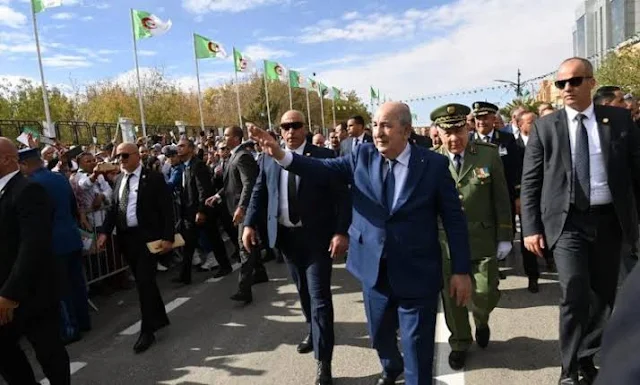Yesterday, thousands of people gathered on the sidewalks of the city of Tizi Ouzou to warmly welcome the President of the Republic, Abdelmadjid Tebboune. This visit, marked by the inauguration of significant projects and meetings with civil society, sent a strong message to the separatists of the Movement for the Autonomy of Kabylia (MAK).
According to sources close to the matter, the Moroccan regime had bet on the President's trip to Kabylia, with assurances from MAK leaders that their "numerous" militants would disrupt the visit and provoke clashes, thereby demonstrating the control of this organization, labeled as terrorist, over the region.
Morocco had prepared for this scenario by taking a series of measures to exploit what Ferhat Mehenni had promised, hoping that a hostile reception for President Tebboune would trigger a large-scale operation to amplify the event, notably at the United Nations. Omar Hilale, Morocco's representative in New York, had his speech ready and was waiting for the green light from Rabat to deliver a harsh diatribe against the "generals' regime" that "oppresses the Kabyle minority aspiring for independence."
However, the Moroccan diplomat's speech, regularly countered by Amar Bendjama, ended up in the trash, and the intervention of the supposed president of the "Kabyle Human Rights League" at the UN, which was to coincide with Tebboune's visit to the city of Genêts, fell flat, as all the arguments prepared under Moroccan direction were dismantled by the nationalist welcome given to the Head of State.
On the occasion of Independence Day celebrations on July 5th, the citizens of Tizi Ouzou organized a grand parade during which many participants commemorated this key date in Algeria's history, displaying the tricolor national flag and paying tribute to the thousands of martyrs from the region who fell for a united and indivisible nation.
Moroccan intelligence services had activated two levers before, during, and after the President's visit to Tizi Ouzou. Yassine Mansouri's agents tried, unsuccessfully, to distort reality by disseminating fake videos of alleged protest movements, but the lie was too blatant to convince. At the same time, the Moroccan regime mobilized its puppet from Roubaix, Hichem Aboud, and his cronies to anticipate a failed visit, even betting on its cancellation. The opposite result did not prevent these mercenaries from continuing to spread their nonsense to a few blind followers, while the DGED artificially inflated the view counts on YouTube and other social networks using well-known methods.
The failure of this operation ultimately caused the MAK to lose all credibility with its Moroccan, Israeli, French, and Emirati supporters.
This visit, rich in announcements and inaugurations, marks a turning point in the region's development dynamics and strengthens national cohesion in the face of division attempts. President Tebboune thus reaffirmed his willingness to work for the well-being of all Algerians, thereby strengthening unity and solidarity within the nation.
Belgacem Merbah
- Get link
- X
- Other Apps
Labels
ALGERIA- Get link
- X
- Other Apps

Comments
Post a Comment